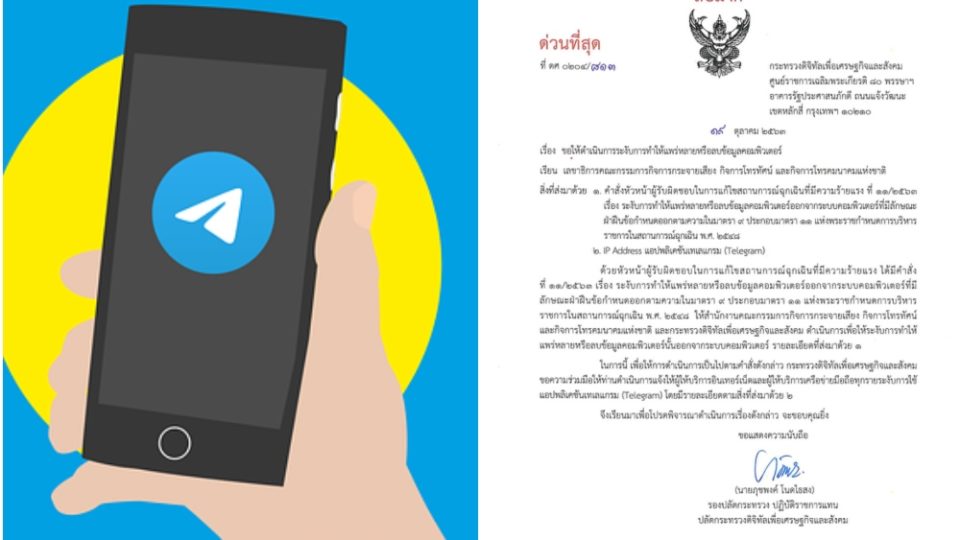Internet providers are being asked to block access to an encrypted chat app that’s become a favorite tool for organizing protests, a leaked document revealed Monday afternoon.
As the authorities give their answer to days of rallies held in defiance of stern warnings, today’s second order targeting information and communications seeks to prevent the use of Telegram by blocking network addresses it uses.
In an order marked “top secret,” the Digital Economy and Society Ministry on Monday ordered the National Broadcasting and Telecommunications Commission to ask service providers to close of four IP addresses associated with use of the service.
Update: 4 Thai news agencies shut down by gov’t as protests explode nationwide
Telegram is home to the Free Youth channel, whose membership had exploded in recent days to reach more than 182,000 users exchanging information about the protests as of Monday afternoon.
The Free Youth group dismissed the order as meaningless.
“This is 2020. Even if you close us, it would mean nothing,” it wrote via a Facebook page the police ordered investigated and closed this morning. “You cannot stop our demands this time.”
As of 3:30pm, the addresses referenced could still be reached via several ISPs.
The document was signed by Putchapong Nodthaisong, ministry deputy permanent secretary.
Minister Puttipong Punnakanta said separately this morning that he had found more than 300,000 URLs on social media that contained content that “instigated” strife and “distorted” information.
Several days ago, Thailand blocked the entire Change.org online petition domain in response to some controversial petitions relating to the monarchy.
While Thailand could ban Telegram in name, shutting down the service would be difficult. In June, Russia dropped its ban on the service after trying to block it unsuccessfully for two years.




